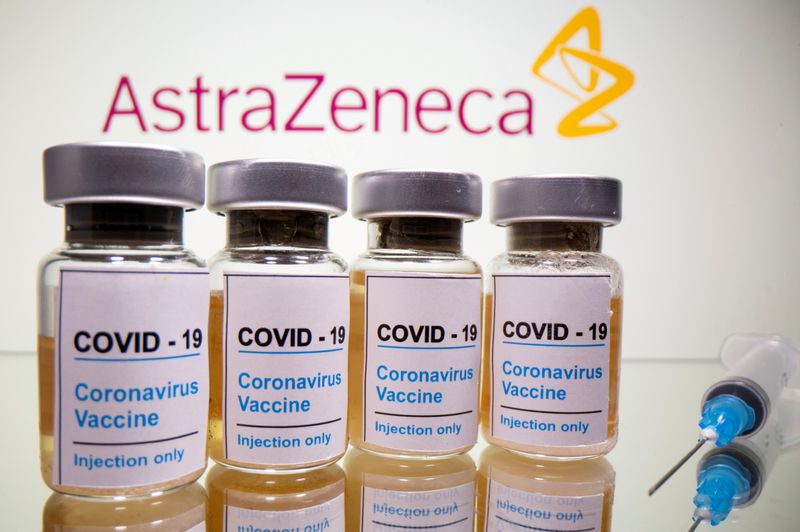LONDON (Reuters) – British Prime Minister Boris Johnson said the COVID-19 vaccine developed by Oxford University and AstraZeneca is effective across all age groups, after Germany recommended the shot be given only to under-65s.
Germany’s vaccine committee said in a draft recommendation that there was not enough data yet about the vaccine’s efficacy in older people, and recommended it be used in those aged 18-64. European regulators are expected to decide on Friday whether to approve the shot.
Asked on Thursday about the German assessment of the vaccine, Johnson said: “I don’t agree with that.”
“Our own authorities have made it very clear that they think the Oxford AstraZeneca vaccine is very good and efficacious,” Johnson said during a visit to a vaccine facility in Scotland.
“The evidence that they’ve seen, that they’ve supplied, is that they think that it is effective across all age groups, and provides a good immune response across all age groups.”
In December, Britain became the first country to approve AstraZeneca’s shot.
Public Health England said the vaccine provides reassuring immune responses in elderly people, even if full efficacy data is still patchy.
“There were too few cases in older people in the AstraZeneca trials to observe precise levels of protection in this group, but data on immune responses were very reassuring,” Mary Ramsay, Head of Immunisations at PHE said in a statement.
In a report on its approval for temporary supply of the vaccine, the Medicines and Healthcare products Regulatory Agency (MHRA) said “there is limited information available on efficacy in participants aged 65 or over, although there is nothing to suggest lack of protection”.
Britain, which is also rolling out a shot supplied by Pfizer, has given more than 7 million people their first dose of a COVID-19 vaccine, and is racing to vaccinate the most vulnerable groups – including over 70s – by mid-February.
Britain has outpaced European neighbours with its roll-out, although some scientists and doctors have questioned steps it has taken to quicken the distribution of first doses, such as waiting up to 12 weeks for second doses.
“The risk of severe disease and death increase exponentially with age – the priority is to vaccinate as many vulnerable people as possible with either vaccine, to protect more people and save more lives,” PHE’s Ramsay said.
(Reporting by Alistair Smout, additional reporting by Guy Faulconbridge; Editing by Sarah Young and Peter Graff)
























